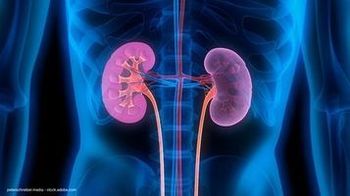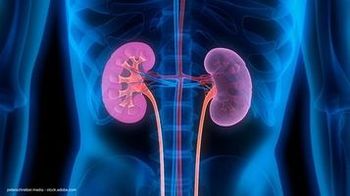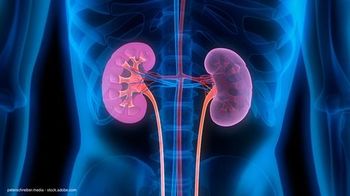
Investigational OAB treatment shows promise in phase III studies
Mirabegron, an investigational agent for the treatment of overactive bladder, appears to improve urinary incontinence and frequency of micturition, according to data from two phase III studies presented at the 2011 European Association of Urology annual congress in Vienna, Austria.
Mirabegron, an investigational agent for the treatment of overactive bladder, appears to improve urinary incontinence and frequency of micturition, according to data from two phase III studies presented at the 2011 European Association of Urology annual congress in Vienna, Austria.
After 12 weeks treatment with once-daily mirabegron, significant improvements from baseline were seen in the co-primary endpoints of incontinence episodes per 24 hours and micturitions per 24 hours compared with placebo (ppp
Mirabegron is a selective beta-3 adrenoceptor agonist that activates beta-3 adrenoceptors on the detrusor muscle of the bladder to facilitate filling and storage.
"The findings of these studies are very exciting," said Vik Khullar, MD, of St. Mary’s Hospital, Imperial College, London, and principal investigator of the European-Australian phase III trial. "Mirabegron would represent the first oral OAB drug treatment with a completely new mode of action since the launch of oxybutynin several decades ago, and, if approved, would represent the first beta-3 adrenoceptor agonist to ever come to the market.
“Unlike antimuscarinics, mirabegron works by improving the storage capacity of the bladder. As these two studies suggest, mirabegron has the potential to provide an effective new treatment option for OAB patients who continue to suffer from the distressing symptoms of incontinence and frequent need to pass urine.”
Newsletter
Stay current with the latest urology news and practice-changing insights — sign up now for the essential updates every urologist needs.





